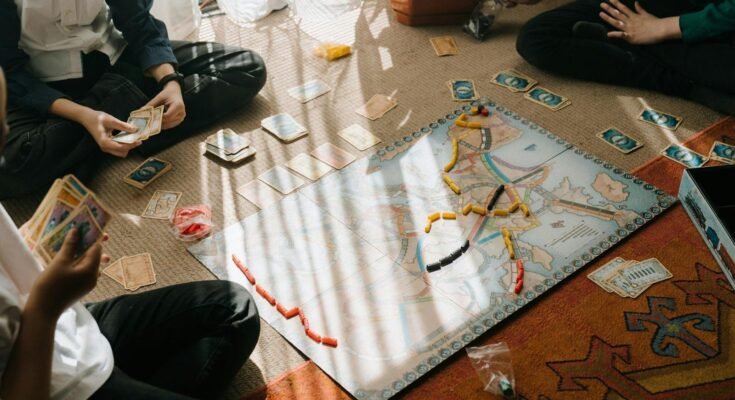When people think of board games, they usually picture the same big names. The ones you’ve played at family gatherings or during rainy weekends. But there’s a whole world of games that never make it to the mainstream shelves. Some are hundreds of years old, others are brand new experiments. They can be strange, clever, or even a little chaotic. It’s a bit like finding a hidden game room in a casino—you expect poker tables, and instead you stumble across lightning roulette india sitting quietly in the corner. It’s surprising, and it changes how you think about the whole space.
Why unusual board games exist
Part of it is creativity for creativity’s sake. Designers want to make something different. Not every game is made to sell millions of copies—some are built to test ideas. Others come from specific cultural traditions, passed down without ever becoming global hits.
Another reason is that niche games appeal to niche audiences. A complex game about running a medieval printing press might only attract a few thousand players, but for that group, it’s perfect. That’s enough to keep the game alive.
Old games you’ve probably missed
There are games that have been played for centuries in certain regions but never gained worldwide recognition. Take Goita from Japan, a hybrid of chess and card play. Or Surakarta from Indonesia, where pieces loop around circles to capture opponents in a way that looks nothing like Western strategy games.
These games often feel refreshing because they break the “move forward, capture piece” structure most of us are used to. They also carry traces of the culture they came from, like certain symbols, shapes, or the way turns are taken.
Modern oddities
Then there are the newer games that take risks. Some use physical challenges—balancing pieces, blindfolded play, or shifting boards. Others have strange themes. You might play as a colony of ants collecting food, or as rival cloud spirits fighting for control of the sky.
Some games even incorporate hidden real-world actions. A player might have to step away from the table and find an object in the house before they can take their turn. It’s a way to make the game bleed into real life.
Games built around storytelling
One interesting trend is the rise of narrative-heavy games. Instead of focusing on winning points, the goal is to create a shared story. Players take turns adding plot twists or making choices for characters.
Because they rely more on imagination than fixed rules, these games often look strange to an outsider. There’s no “board” in the traditional sense—just cards, booklets, or even a phone app guiding the action.
Why people like them
Playing unusual board games is partly about novelty. They shake up the familiar rhythm of mainstream titles. You can’t just rely on strategies you’ve used before—you have to learn from scratch.
They also create different social dynamics. When no one knows the rules perfectly, the group is on equal footing. That can make the experience more about discovery than competition.
The barrier to entry
One downside is that unusual games can be harder to learn. They may have rulebooks that take a while to understand. Some require special pieces you can’t replace if they get lost. Others are so rare they’re only available in limited runs.
That scarcity can make them feel more special, but it also means they might never reach a wide audience. Still, for people who love digging into the hidden corners of board gaming, that’s part of the fun.
How to find them
Local hobby stores sometimes stock independent or imported games. There are also online communities where people trade, review, and discuss obscure titles. Conventions are another good place—you can often try out a game there before deciding to buy it.
And sometimes, you just have to take a risk. Pick up the weird-looking box with rules you don’t fully understand. Worst case, you have a short, strange experience. Best case, you find a new favorite.
Final thought
Unusual board games aren’t for everyone. Some will feel too strange, too slow, or too complicated. But they remind us that games can be more than just a way to pass the time. They can be cultural artifacts, creative experiments, or little puzzles that only make sense once you’re inside them. And that’s a world worth exploring.




